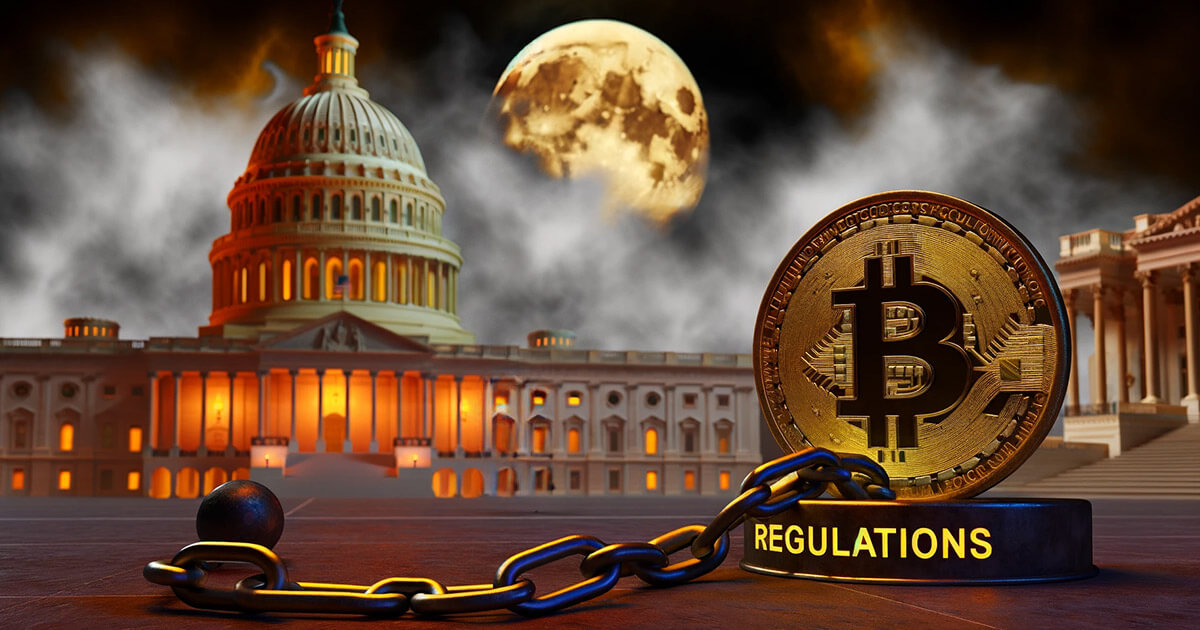As investors lick their moistened chops for the coming Bitcoin ETF, just to have their Bitcoin ironically held by Goldman Sachs and JPMorgan, and Sen. Elizabeth Warren’s war on self-custody rages on, the US Bitcoin industry is looking down the barrel of a radically new paradigm. A new paradigm which might not be all that good for the industry after all.
In the future, bitcoins held by American citizens might be hodled not by plebs but by Goldman Sachs, JP Morgan, and other massive institutions–and this might be required by law to boot. Even though the Bitcoin community has largely celebrated the recent Bitcoin ETF approval–in anticipation of bullish price movements–the instrument nonetheless introduces counterparty risk to a technology designed to eliminate it. This effectively strips Bitcoin of its innovation.
Those who buy the Bitcoin ETFs will receive a paper certificate, not bitcoins, especially in light of the SEC wanting the ETFs to be issued on a cash-in/cash-out basis. Bitcoin ETFs thus take bitcoins out of the hands of hodlers in exchange for ease and the somewhat bastardized sense of security one gets when a massive, regulated institution custodies an asset.
And then there is Warren’s bill, which will force investors to go through the centralized institutions Bitcoin was designed to skirt. No more self-custody, no more cold storage. The Senator’s war on self-custody would undermine the ability of software companies to create secure, “non-custodial” crypto wallets wherein users can take control of their own funds, rather than entrusting such funds to an often-unreliable crypto exchanges and third-party custodians.
This bill, most likely unconstitutional and dubbed the Digital Assets Anti-Money Laundering Act, would hurt consumers and the industry by prohibiting the use of digital asset mixers and requires self-hosted wallets, miners, and validators to implement Anti-Money Laundering (AML) policies.
It’s sad but true, but the future of Bitcoin in the US hangs in the balance. While so many champion that Bitcoin is a commodity instead of a security, what difference will that make if you can’t hold your own Bitcoin? The entire industry will have to pivot away from fighting the SEC over tokens and instead fight the Senate and Executive over the right to hodl, and ultimately bring a case (or cases) to the Supreme Court, the result of which would carry major implications for Bitcoin not only in the US but worldwide.
The outlawing of self-custody in the US is a development that would keep the US in the financial stone age, even though in Bitcoin’s incipience, much of the innovation around it came out of the US. That will all be over, which could have implications for global markets, with Asia continuing to dominate crypto. Europe could also become a serious player, especially with clear regulations in the form of Markets in Crypto-Assets (MiCA) regulation.
With these two issues dove-tailing like they are, one would almost suspect a sinister plot to undo Satoshi’s invention in the Land of the Federal Reserve and runaway monetary policy. At the very least, it is a sign of a country that has lost its way, from being a bastion for innovation to squashing innovation on behalf of big financial institutions.
The entire premise of Bitcoin is for us to hold our own Bitcoin sans the need for a middleman like BlackRock, Goldman Sachs or JPMorgan. There is no blockchain without self-custody. Any user should be morally permitted to download a Bitcoin client, generate addresses for transactions and store their Bitcoins on their device protected by a private key and a seed phrase. That’s financial sovereignty, and it’s what Bitcoin–and crypto, by extension–is really all about. This is fundamental. But the optics in the US look very bad.
The post How the US threatens crypto’s core values appeared first on CryptoSlate.
Credit: Source link
































